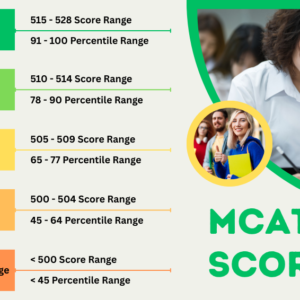Education is the one field of interest that teaches us the ways of the world and breeds other professions. When it comes to employment options, being a teacher is the first thing that comes to mind. As an educator, you get several opportunities to change lives and develop respectable and well-groomed students. Indeed, it is a tremendously rewarding career path. The monthly holidays – or days of rest – are also a huge plus.
Most people think of teachers as someone who teaches kids in secondary or primary schools. However, the professions that call for teaching skills include private tutors, college professors, park rangers, CPR instructors, and camp counselors. So, you see, there’s more to the world of education than just being a teacher. But, to be efficient and score a higher positions in the education sector, you need to hone diverse skillsets to complete the package.
Require Skills for Higher Positions in Education Sector
So, here’s a list of all the necessary skills you need to master to get higher job positions and – above all – inspire students of all ages.
Leadership
Educators need leadership skills outside and inside of the classroom. Displaying direction and authority for students can be vital in cultivating a sense of learning and knowing the importance of general responsibility in life. Leadership is also critical when interacting with school administrators and teachers. After all, how do you think an educator went from an average school teacher to a principal? The exhibition of decisiveness, integrity, ability to mentor and teach, and relationship building is the entire crux of leadership. So, if you’re pondering on how to become a school principal, master the art and science of leadership, along with various other skills. And you’ll be good to go. Furthermore, educators may accept additional duties like directing a particular interest club, like drama/chess, or coaching a sports team to demonstrate strong leadership qualities. In summary, teachers with amplified leadership skills may be more likely to shift to senior positions like superintendent or principal.
Strong work ethic and devotion
Teachers must exemplify their passion, commitment, and strong work ethic through their roles. They must invest not only in their students’ careers but also in their students as individuals. Teachers must remain focused, motivated, and on top of their work tasks. They should also make themselves available to students who require additional assistance.
Teachers must also build trust and strong relationships with their students from the start of the school year. It can be strengthened throughout the school year, benefitting you in the long haul.
Ability to adapt
One of the essential qualities that every worker in the education field must have is adaptability. This quality also goes hand in hand with acceptability. These two characteristics are related. Last-minute changes may also be required in the classroom, depending on the situation or student. It may be more difficult for some teachers than others. In general, this concept refers to the ability to adjust to new roles, materials, schedules, curricula, and job responsibilities. That is always the intention.
Critical thinking
Teachers juggle with solving a wide range of problems, often under time constraints. They respond to difficult questions from students on the spot, revise lesson plans, deal with issues among colleagues, and resolve student conflicts. Being a teacher necessitates synthesizing the information available to you at any given time and making sound decisions quickly using critical thinking skills.
Effective teachers demonstrate critical thinking in the following ways:
- Asking the challenging questions and addressing the “what ifs.”
- Maintaining and creating a comfortable learning environment
- Collecting information
- Managing student behavior
- Setting goals and expectations
- Creating solutions to problems
- Observing colleagues and students and predicting their needs
Communication
Teachers communicate in several ways, including nonverbal, written, and verbal communication. Candidates with strong verbal communication make their curriculum and lesson material clear and understandable. They present concepts in an easy-to-understand manner. When teachers provide feedback on assignments and write progress reports for parents, they demonstrate written communication skills. Body language is also essential in education. Teachers who stand tall in the classroom, smile frequently and make eye contact with their students appear confident and kind. It likely results in increased engagement of the students.
Time management
Every job in the educational sector demands continuous efforts. You might even work during the weekends or evenings, planning lessons, shopping for classroom supplies, or grading papers.
Therefore, people working in the education sector will need to focus on time management skills to ensure a healthy work-life balance. And so, setting aside specific times of the day for relaxation or other personal activities is one strategy. Teachers will most likely benefit from setting a deadline for having tests, papers, or other assignments returned and graded to students. Teachers, for example, could make it a personal goal to return grades within one week of receiving them. When working on students’ scores, teachers may find it helpful to set a time and date. Managing time while caring for yourself is the most needed skill that will get you anywhere you want to be.
Organizational skills
Being well-organized is yet another skill needed to land higher positions in the education sector.
Organizational skills include classroom management, lesson design, planning, and other responsibilities. In terms of the planning stage, organizing is critical to know how to time each component. It also enables one to determine what and how to plan and when to execute. Teachers must be aware of the lessons they are planning and ensure that they are pacing appropriately. Organizational skills are also crucial for classroom transitions, seating arrangements, and procedures for classroom management.
Patience
Working as an educationalist will put your fortitude to the test, regardless of your level of teaching. Patience is one of the most critical skills to practice as a teacher. Whether you’re communicating student progress or issues with parents, managing classroom behavior, or working with colleagues who hold opposing perspectives.
You have to be more patient with the parents and coworkers. Parents come in with their perceptions of what happened to them as students or previous experiences that may have harmed their child. You must be patient and understanding enough to support their concerns. Moreover, remaining patient with your role will aid you in reaching higher positions.
Conclusion
In precis, these are some of the most sought-after skills that all educators should foster. By developing and learning these abilities, you can become more successful in your career and personal interactions. From nurturing every student’s varying capabilities to creating a fulfilling environment for the leaders of tomorrow – you can do it all. Also, suppose you’re one of those educators who takes genuine pride in the achievements of others. In that case, the education sector is indeed well-suited for you. An educator’s success, after all, is determined by the accomplishments of students. So, take these skills to heart and reap the benefits of a higher and much more rewarding career.






